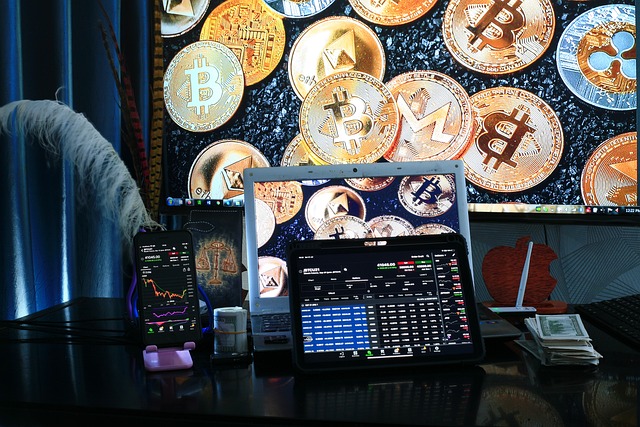Can You Day Trade Crypto? A Comprehensive Guide
Day trading in the cryptocurrency market is a topic that has gained significant attention in recent years. With the rise of digital currencies like Bitcoin, Ethereum, and many altcoins, interested traders are eager to know whether day trading is a viable option. In this article, we will explore what day trading is, how it relates to cryptocurrencies, the risks involved, strategies for successful trading, and much more. Let's dive deep into the world of day trading cryptocurrency.

Understanding Day Trading
Day trading involves buying and selling financial assets within the same trading day, aiming to capitalize on short-term price movements. This strategy is common in the stock market but has found its niche within cryptocurrency as well. However, this form of trading requires skill, discipline, and a thorough understanding of market dynamics.
What is Day Trading?
At its core, day trading is all about taking advantage of volatility. Traders hold onto positions for minutes or hours rather than days or weeks, often executing multiple trades within a single day. The goal isn't necessarily to make huge profits on each trade, but rather to accumulate smaller gains that can lead to significant profits over time.
The Appeal of Day Trading Crypto
- High Volatility: The crypto market is known for its extreme price fluctuations, which provide plentiful opportunities for day traders.
- Liquidity: Major cryptocurrencies generally have high liquidity, meaning trades can be executed quickly without dramatically affecting prices.
- 24/7 Market: Unlike traditional stock markets, cryptocurrencies can be traded around the clock, enabling traders to capitalize on movements at any time.
Is Day Trading Crypto Suitable for You?
Before diving into day trading cryptocurrencies, it is important to consider whether this approach suits your trading style, risk tolerance, and financial goals. In my opinion, engaging in day trading without sufficient knowledge and experience can be risky. Below are some factors to contemplate.
Risk Tolerance
Day trading cryptocurrencies is not for the faint-hearted. Price swings in crypto can be dramatic, and it’s critical to understand your risk tolerance. You must be comfortable with the possibility of losing your investment as much as you are excited about the potential for profit.
Time Commitment
Successful day trading demands a significant time investment. You’ll need to analyze charts, monitor news, and stay updated on market sentiment. If you cannot dedicate ample time to trading, it might not be the right strategy for you.
Trading Knowledge and Skills
You should have a good grasp of technical analysis, reading charts, and understanding market psychology. My personal view is that traders who invest time in education—whether through books, online courses, or forums—set themselves up for better outcomes.
The Risks of Day Trading Crypto
Like any trading strategy, day trading crypto comes with its fair share of risks. Being aware of these risks is crucial for making informed decisions.
Market Volatility
While volatility can present opportunities, it also increases the likelihood of substantial losses. Prices can drop unexpectedly, and without a solid strategy, traders may exit positions too late, leading to significant losses.
Emotional Trading
Day trading requires a steady and unemotional approach. Unfortunately, emotions such as greed and fear often lead traders to make impulsive decisions. In my opinion, maintaining a disciplined trading plan is essential to mitigate emotional interference.
Lack of Regulation
The cryptocurrency market is less regulated compared to traditional markets, which raises concerns regarding fraud, market manipulation, and other dangers. Always ensure you are using reputable exchanges and brokers.

Strategies for Success in Day Trading Crypto
Formulating a reliable strategy is key to succeeding in day trading cryptocurrencies. Below are some commonly employed strategies along with personal insights.
Technical Analysis
Most day traders rely heavily on technical analysis, which involves studying price charts and patterns. Indicators like Moving Averages, RSI (Relative Strength Index), and MACD (Moving Average Convergence Divergence) are popular tools. From my perspective, combining different indicators often yields more accurate predictions.
Scalping
Scalping is a strategy that involves making numerous trades to capture small price movements throughout the day. While it requires rapid decision-making and execution, it can be a profitable strategy for those who can remain focused and disciplined.
News Trading
Keeping up with news in the cryptocurrency space can give traders an edge. Major announcements, partnerships, or government regulations can influence market sentiment considerably. In my experience, developing a keen eye for breaking news can often inform better trading decisions.
Tools and Platforms for Day Trading Crypto
Choosing the right trading platform is crucial for day trading success. Here’s a look at some popular trading platforms and tools.
Exchanges
- Coinbase Pro
- Binance
- Kraken
- Bitfinex
These exchanges offer advanced trading features like charting tools, stop-loss orders, and margin trading, which are essential for day traders.
Charting Tools
Tools like TradingView or Coinigy are valuable for conducting technical analyses. They provide extensive charting options and the ability to create alerts for price movements.
Conclusion: To Day Trade or Not to Day Trade? Personal Reflections
In summary, day trading cryptocurrency can be a rewarding yet challenging endeavor. It requires a solid understanding of market dynamics, a disciplined approach, and an ability to manage risks effectively. Personally, I believe that while day trading can be lucrative, it’s not for everyone. If you have a strong grasp of the concepts, can handle the emotional rollercoaster, and are willing to commit time for continuous learning, day trading might be a worthwhile venture.
However, for those who do not have the necessary resources or emotional resilience, other forms of investment such as long-term holding may prove to be more beneficial. Ultimately, the decision to engage in day trading should align with your individual goals and capabilities.